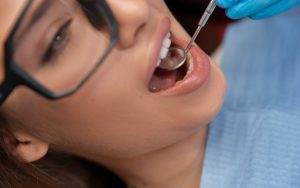For many denture wearers, the question of whether it’s safe to sleep with dentures is often overlooked. Some people leave them in overnight for convenience, while others worry about discomfort or changes in appearance when removing them. However, keeping dentures in while sleeping can have significant effects on oral health, some of which may not be immediately noticeable. From bacterial buildup to potential bone loss, wearing dentures 24/7 can lead to long-term complications. In this article, we’ll explore whether it’s safe to sleep with dentures, the risks and benefits involved, and the best practices for maintaining both your dentures and overall oral health. Understanding the impact of overnight denture wear will help you make informed decisions about your long-term dental care.
Understanding Dentures and Their Function
Dentures are removable prosthetic devices designed to replace missing teeth and restore essential oral functions such as chewing, speaking, and maintaining facial structure. They are custom-made to fit the unique contours of a patient’s mouth and come in different types, including full dentures for individuals missing all their teeth and partial dentures for those who still have some natural teeth remaining. Unlike permanent restorations like dental implants, dentures require ongoing care and adjustments to ensure proper function and comfort over time.
One of the key roles of dentures is to provide support to the facial muscles, preventing the sunken appearance that often occurs when teeth are lost. By restoring the ability to chew a variety of foods, dentures also play a vital role in digestion and nutrition. However, despite their benefits, dentures do not function exactly like natural teeth, and wearing them continuously—especially overnight—can place excessive pressure on the gums and underlying bone. This prolonged pressure may accelerate bone resorption, leading to changes in the fit of the dentures over time.
Additionally, while dentures are designed to be durable, they are not indestructible. They require proper cleaning and maintenance to prevent bacterial buildup, staining, and structural wear. Understanding how dentures function and their impact on oral health is crucial for ensuring long-term comfort, performance, and hygiene.
Is It Safe to Sleep With Dentures?
Many denture wearers choose to sleep with their dentures in place, often for convenience or personal comfort. Some may feel more secure keeping them in overnight, while others worry about the hassle of removing and storing them properly. However, dental professionals generally advise against wearing dentures while sleeping due to the potential risks it poses to oral health. Leaving dentures in overnight can contribute to bacterial buildup, increased risk of infections, and long-term effects on the gums and jawbone. Understanding the potential consequences of sleeping with dentures can help individuals make informed choices about their oral care.
Sleeping in Dentures Risks:
- Increased Bacteria and Fungal Growth: Dentures create a warm, moist environment where bacteria and fungi can thrive, increasing the risk of infections like denture stomatitis.
- Gum Irritation and Inflammation: Prolonged denture wear puts constant pressure on the gums, leading to soreness and inflammation.
- Higher Risk of Pneumonia: Studies suggest that sleeping with dentures may increase the risk of respiratory infections, particularly in older adults, due to bacterial aspiration.
- Accelerated Bone Loss: Continuous wear prevents the jawbone from getting necessary rest, leading to faster bone resorption and changes in denture fit.
- Bad Breath and Poor Hygiene: Trapped food particles and bacteria can contribute to persistent bad breath and an increased risk of oral infections.
Understanding these risks highlights the importance of giving the mouth a break from dentures during sleep to maintain optimal oral health.
Benefits and Drawbacks of Sleeping With Dentures
Some denture wearers prefer to keep their dentures in overnight for convenience, comfort, or aesthetic reasons. However, while there are a few perceived benefits, the drawbacks often outweigh them. Understanding both sides can help individuals make informed decisions about their nighttime denture routine.
Benefits:
- Increased Confidence: Some patients feel more comfortable and secure keeping their dentures in, particularly when sharing a room with a partner.
- Continuous Functionality: For those who struggle with adjusting to life without teeth, wearing dentures at night may provide a sense of normalcy.
- Reduced Morning Discomfort: Keeping dentures in can prevent the initial gum sensitivity or discomfort that some people experience when reinserting them in the morning.
Drawbacks:
- Bacterial and Fungal Infections: Sleeping in dentures increases bacterial growth, potentially leading to conditions like denture stomatitis or fungal infections.
- Gum Inflammation and Pressure Sores: Prolonged wear prevents gums from resting, often resulting in irritation, inflammation, or painful pressure spots.
- Accelerated Bone Loss: Continuous pressure on the jawbone during sleep can speed up bone resorption, affecting long-term denture fit and comfort.
- Poor Breath and Hygiene: Wearing dentures at night can trap food particles and bacteria, causing persistent bad breath and an increased risk of oral infections.
Weighing these benefits and drawbacks emphasizes the importance of balancing comfort with proper oral health practices.
The Importance of Removing Dentures Before Bed
Removing dentures before bed is essential for maintaining both oral health and the longevity of the dentures themselves. While it may seem convenient to keep them in overnight, doing so can lead to serious complications over time. Dentures rest on the gums and underlying jawbone, applying constant pressure that can gradually accelerate bone loss. This process, known as bone resorption, affects how well dentures fit and can lead to discomfort, slipping, or the need for frequent adjustments.
Allowing the gums to rest at night promotes better circulation and healing, reducing the risk of irritation and soreness. Continuous denture wear can also create an environment where bacteria and fungi thrive, leading to infections such as denture stomatitis. This condition causes redness, swelling, and discomfort in the mouth, often requiring antifungal treatment.
Proper denture care also involves cleaning and soaking them overnight to remove plaque, food particles, and bacteria buildup. Leaving dentures out in a recommended cleaning solution not only helps maintain their shape but also prevents unpleasant odors and staining. Developing the habit of removing dentures before bed supports both oral hygiene and overall health, ensuring that they remain functional and comfortable for as long as possible.
Best Practices for Denture Care During Sleep
Proper denture care at night is essential for maintaining oral health and extending the lifespan of the dentures. Simply removing them before bed isn’t enough—how they are cleaned, stored, and maintained overnight plays a critical role in their durability and hygiene. A key step is thoroughly cleaning dentures before placing them in a storage solution. Brushing them gently with a soft-bristled toothbrush and a denture cleaner removes plaque, bacteria, and food particles that could contribute to infections or unpleasant odors. Regular cleaning also helps prevent staining and buildup that can dull their appearance over time.
After cleaning, dentures should be soaked overnight in a denture-specific cleaning solution or plain water to prevent them from drying out. Leaving them exposed to air without moisture can cause warping, leading to an improper fit and discomfort. It’s also essential to store them in a safe place where they won’t be dropped or damaged.
In addition to denture maintenance, caring for the gums is just as important. Brushing the gums, tongue, and any remaining natural teeth before bed helps reduce bacteria and promotes healthy circulation. Rinsing with an alcohol-free mouthwash can further aid in keeping the mouth fresh and free of harmful bacteria. Following these best practices ensures that dentures remain in good condition while also keeping oral tissues healthy and free from irritation or infection.
Frequently Asked Questions About Sleeping With Dentures
Q: Can I wear my dentures 24/7 without taking them out?
A: While it may be tempting to keep dentures in all the time, it’s not recommended. Wearing dentures 24/7 can lead to gum irritation, bacterial buildup, and an increased risk of infections like denture stomatitis. Your gums need time to rest and recover overnight to maintain long-term oral health.
Q: What happens if I accidentally sleep with my dentures in?
A: Occasionally forgetting to remove your dentures before bed is not a major issue, but doing so regularly can cause problems like bad breath, gum inflammation, and potential bone loss over time. If you forget one night, simply remove them the next evening and follow proper cleaning practices.
Q: Can sleeping with dentures cause infections?
A: Yes, sleeping with dentures can contribute to infections. Bacteria and fungi can build up beneath the denture, leading to conditions like denture stomatitis, which causes redness, swelling, and discomfort in the mouth. Proper nightly cleaning and removal help prevent this.
Q: Will my dentures lose their shape if I take them out at night?
A: No, as long as dentures are properly stored in water or a denture-soaking solution, they will maintain their shape. Allowing them to dry out can cause warping, making them uncomfortable or ill-fitting.
Q: How can I feel comfortable without dentures while sleeping?
A: If you feel self-conscious or uncomfortable without your dentures at night, consider using a soft liner for added cushioning, or speak with your dentist about implant-supported dentures, which offer a more secure and permanent fit.
Conclusion
While sleeping with dentures may seem convenient, it can lead to oral health complications, including bacterial buildup, gum irritation, and even accelerated bone loss. Removing dentures at night allows the gums to rest and reduces the risk of infections like denture stomatitis. Proper overnight care, including cleaning and soaking dentures, is essential for maintaining their longevity and ensuring continued comfort.
If you wear dentures and have concerns about their care, fit, or long-term impact on your oral health, consulting with a dentist is the best way to ensure you’re following the right practices. At High Desert Dental, we provide expert guidance on denture care and offer solutions tailored to your specific needs. Whether you need adjustments, replacements, or simply advice on best practices, our team is here to help.
Call us today at 505-888-2606 or visit our office to schedule an appointment. Let’s work together to keep your dentures—and your smile—in the best possible condition for years to come!





